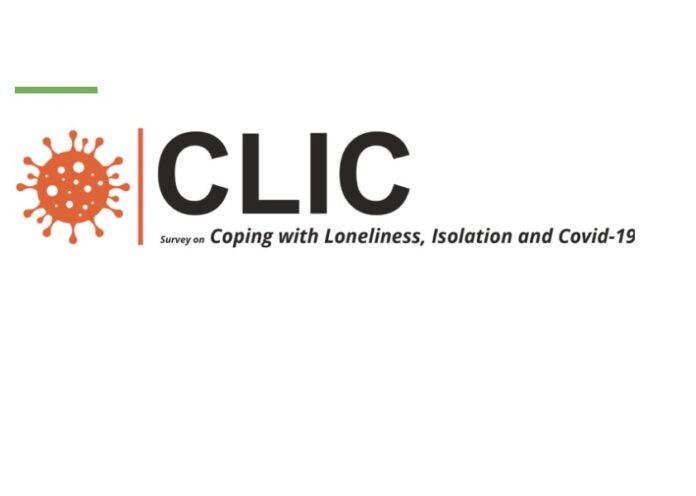The Institute of Global Health and Human Ecology (I-GHHE) at the American University in Cairo (AUC) along with researchers from the US, Canada, Ireland, New Zealand, UK, Norway and the Netherlands are undertaking a global survey on how people are coping during the Covid-19 pandemic.
The physical distancing and restriction of movements as part of COVID-19 public health measures require people to change their work, home and social lives. It is suspected that more people than ever before are experiencing loneliness and social isolation due to Covid-19 restrictions. We’d like to find out if that’s the case.
The CLIC-DemCare study is interested in persons who are -currently- taking care of dementia patients to better understand the impact of COVID-19 pandemic on their life.
This anonymous online survey (Click here) is for people aged 18+ and includes questions on demographics, health, health behaviours, loneliness, isolation and personal experiences around Covid-19. It aims to help understand how people are coping during the Covid-19 pandemic, especially concerning loneliness and social isolation.
This survey data can offer invaluable insights into life before and during the Covid-19 pandemic, including key challenges faced and coping strategies used. It will help us understand how the Covid-19 pandemic has impacted on individuals, families, communities, policies and services at both a country and global level and will be vital in informing society in the future.
By working with international experts and gathering data at a global level, we can pool expertise and support governments and policymakers in making decisions to address challenges in this area.
Who is involved in this study
The Institute of Public Health, Ulster University, Trinity College Dublin, Maynooth University, St James’s Hospital Dublin, Brunel, Boston College, Columbia University, George Mason University.; University of Auckland & Swansea University, Nipissing University; NORC at the University of Chicago; Brigham Young University; Vrije Universiteit Amsterdam; University of California, San Francisco. ( This study is being undertaken by a group of International academic researchers who are part of the International Loneliness and Isolation research NetworK (I-LINK) )
Click here to undertake the survey
Click here to read more about the study and those involved.
Institute of Global Health and Human Ecology, American University in Cairo, Egypt
Dr Mohamed Salama established the first Translational Neuroscience Unit in Egypt. Mohamed’s collaborative research led to establishing the Egyptian Network for Neurodegenerative Disorders (ENND). Mohamed was selected as a SOT Global Senior Scholar in 2013 and Translational/bridging awardee in 2016. He was awarded by Parkinson’s and Movement Disorders Foundation (PMDF) for his continuing research in the field of neurodegeneration.
Recently, Mohamed and his colleagues succeeded to draft the first Reference Egyptian Genome and collaborating with other colleagues to start a national cohort (A Longitudinal Study of Egyptian Health Aging [AL-SEHA]). Currently, Mohamed is Atlantic senior fellow for Equity in brain health at the Global Brain Health Institute (GBHI) and Associate professor at the Institute of Global Health and Human Ecology at the American University in Cairo (AUC).



